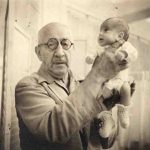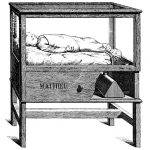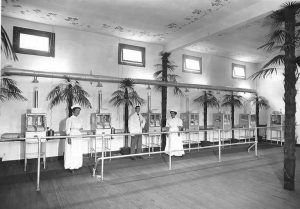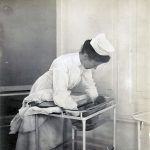
 Anyone who has ever been the parent of a premature baby, knows the importance of the incubator. In the mid-1800s and before, a baby born prematurely had almost no chance of survival. Most doctors could only offer comfort care for the infant until death came. All that came to a slow change when a man named Martin Arthur Couney, who was born Michael Cohen in 1869, a Polish advocate and pioneer of neonatal technology, invented the incubator. As time went by, Couney became known as the “Incubator Doctor.”
Anyone who has ever been the parent of a premature baby, knows the importance of the incubator. In the mid-1800s and before, a baby born prematurely had almost no chance of survival. Most doctors could only offer comfort care for the infant until death came. All that came to a slow change when a man named Martin Arthur Couney, who was born Michael Cohen in 1869, a Polish advocate and pioneer of neonatal technology, invented the incubator. As time went by, Couney became known as the “Incubator Doctor.”
While the incubator is an amazing scientific invention, its origins were a little less than what would normally be considered scientific. Prior to Couney’s invention, it was widely believed that premature babies were weaklings, who were unfit to survive into adulthood. It reminds me of what people used to say about orphans. Couney became one of the first advocates for premature babies. Couney allegedly apprenticed under Dr Pierre-Constant Budin, an established French obstetrician in the 1890s, but there is no proof that he ever became a doctor.
Doctor or not…scientist or not, Couney had a knack for inventing…at least in this instance. He called his invention “The Infantorium” and set about trying to get a doctor to use it, but they would not. Left with no choice, Couney decided to take his invention on the road. Basically, he turned it into an amusement park sideshow, where he gave it the famous name. His plan was to charge visitors 25¢ to view premature babies displayed in the incubators. Now, you might think this whole idea is completely insane, and wonder what doctor…much less parent would give consent for such a crazy idea. I did too. Well, we are both wrong in thinking no one would go along with this. Parents agreed, because their child was considered a lost cause anyway. They were also told that the care given to their children would be free, and if the child survived, they got their baby back. I’m sure is was the hardest decision they ever made, but they felt they had no choice.
Couney is best-known for his Infantorium at Coney Island, New York, although he traveled all around the world before coming to America. The “show” consisted of nurses caring for the children as people watched the process. During Couney’s active years at fairgrounds across America, he and his Infantoriums have become widely accredited with saving the lives of over 6,500 premature babies. Couney is additionally recognized as one of the first pioneers of neonatological technology. He was so well known that people sought him out. “One day, an on-edge young man with the hatbox wanted to see Dr. Couney on a personal matter, he said. The doctor assumed he had something to sell and sent him away. The man took his hatbox and left to spend hours wandering amid the dancing elephants, scenic railways, and carnival din of Coney Island. At last he reappeared; could Dr. Couney see him now? This time Couney said yes. The man opened the hatbox. Inside was a premature baby, tiny and red and struggling for breath.”
Dr Martin A Couney knew what to do. In fact, he knew more about “preemies” than anyone else in the United 
 States. He was the first American to offer specialized treatment for them and could boast, toward the end of his career, that out of 8,000 in his care, 6,500 survived. “I can’t save all the babies,” he said, “but the percentage of loss is not large, and every parent knows I took good care of his baby until God took its soul. I never had a complaint or an investigation.” He was truly a great man. Martin Couney died on March 1, 1950. As a side note, Coney Island, in New York City was named after this amazing man.
States. He was the first American to offer specialized treatment for them and could boast, toward the end of his career, that out of 8,000 in his care, 6,500 survived. “I can’t save all the babies,” he said, “but the percentage of loss is not large, and every parent knows I took good care of his baby until God took its soul. I never had a complaint or an investigation.” He was truly a great man. Martin Couney died on March 1, 1950. As a side note, Coney Island, in New York City was named after this amazing man.


One Response to Taking It On The Road